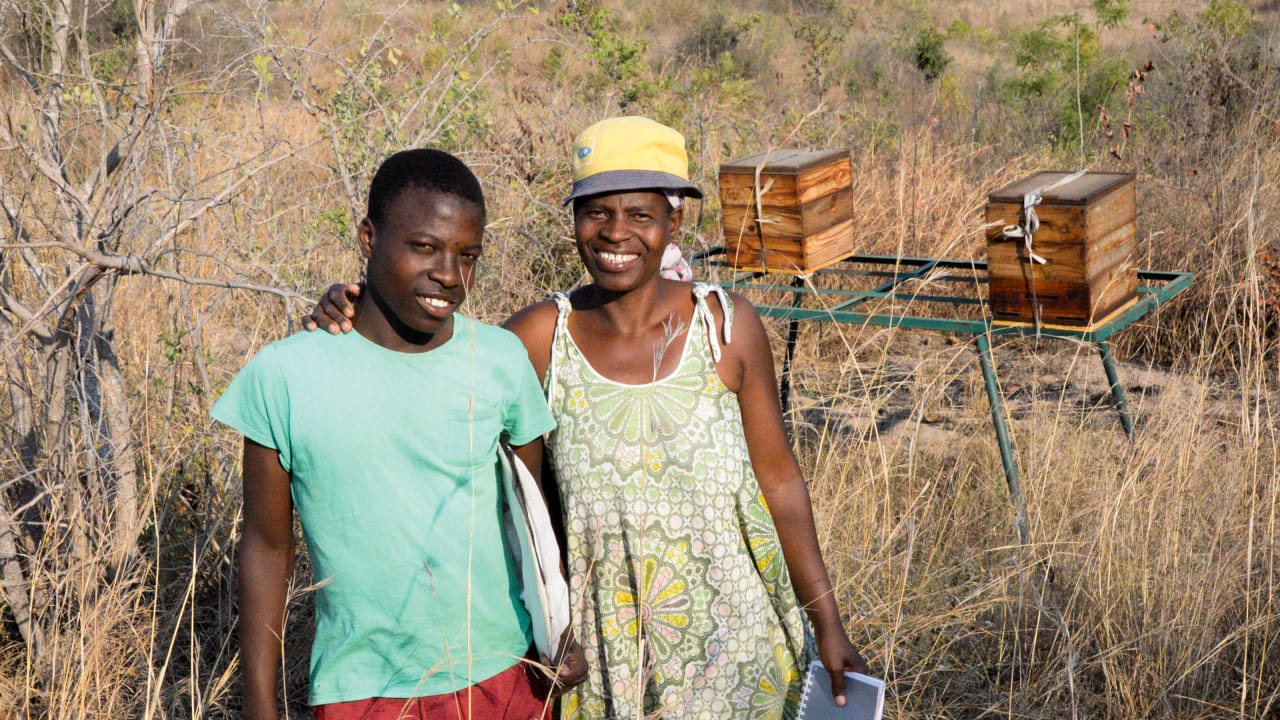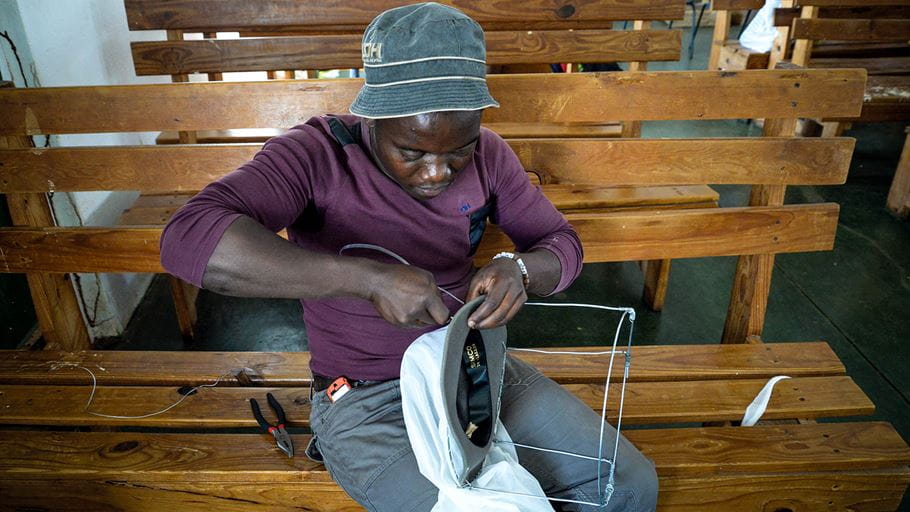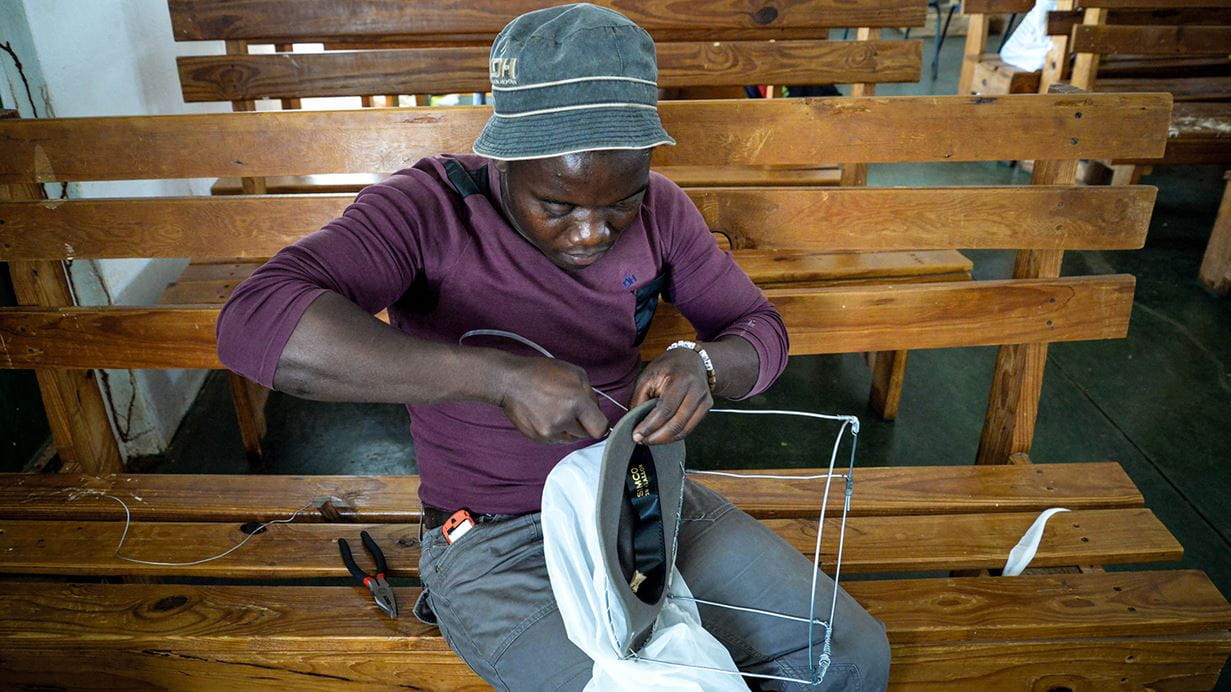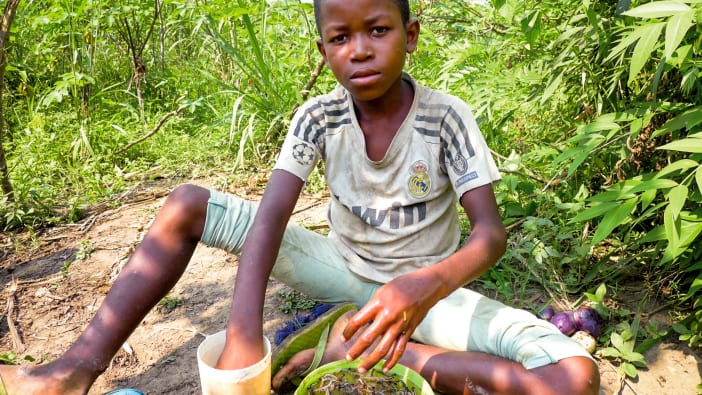‘In our community there is a lot of unemployment and I was struggling to even pay the transport costs for my children to go to school,’ says mother-of-three Lonny Ndlovu from Bushbuckridge in South Africa. ‘That is why I started beekeeping.’
Along with other members of her community, Lonny was invited to take part in a project run by local organisation African Honey Bee.
Central to the project is the recognition that God blesses each of us with gifts including relationships, abilities and local resources. When we understand what these gifts are, we can use them to transform our lives and reach out to serve others.
Getting started
The first step is to establish self-help groups. These give people the opportunity to identify the collective resources and skills available to them. They also learn group management and financial skills, and start to save small amounts of money.
This money can then be invested in businesses such as beekeeping, chicken farming and vegetable growing.
Participants, known as honey bee guardians, learn how to make their own beekeeping equipment using locally available and recycled materials. For example, old clothes are turned into protective gloves and hats, and empty paint cans are used to make smokers. (Beekeepers use smoke to help keep the bees calm during hive inspections).











